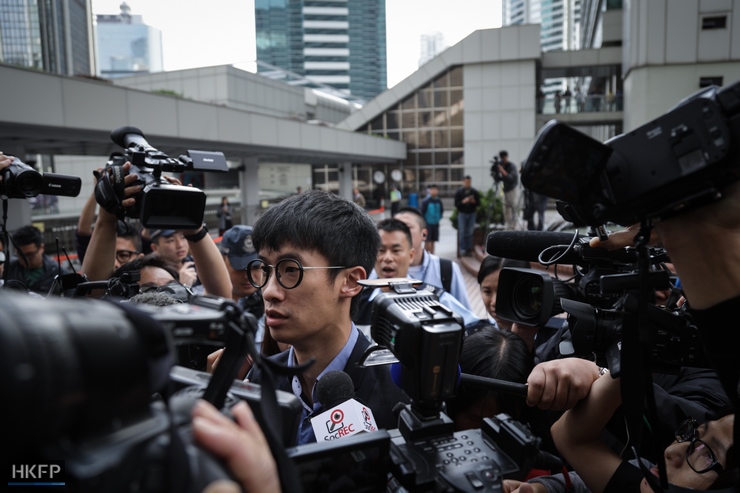Youngspiration politicians Yau Wai-ching and Baggio Leung Chung-hang lost their appeal on Wednesday to overturn the High Court’s decision to disqualify them from the legislature. The court previously disqualified them owing to their controversial conduct during last month’s swearing-in session.
The duo did not appear at the High Court to collect the judgment. Leung said last week that he intended to appeal to the Court of Final Appeal if he lost.

Retrospective effect
Citing a Court of Final Appeal case in 1999, the Court of Appeal held that Beijing’s interpretations on the Basic Law have a retrospective effect.
“The Interpretation, being an interpretation of the relevant provisions, dates from 1 July 1997 when the Basic Law came into effect. It declared what the law has always been,” it wrote in the judgment.
Beijing handed down an interpretation of the Basic Law early this month setting out the conduct expected of oath-takers. During the appeal hearing, the judges asked the parties to explain their views on the interpretation.
Counsel for Leung argued that the interpretation should be discarded as it amounts to an amendment of the Basic Law, which should follow a different procedure under the mini-constitution.
Youngspiration appeal by HKFP on Scribd
The Court of Appeal said in the judgment: “The view of a common law lawyer, untrained in the civil law system, particularly the civil law system practised on the Mainland, is, with respect, simply quite irrelevant.”
It held that it has no jurisdiction to decide whether Beijing’s ruling was invalid as argued by the duo.
Basic Law supremacy
Three judges presided over the appeal hearing: The High Court’s Chief Judge Andrew Cheung Kui-nung, Mr Justice Johnson Lam Man-hon, and Mr Justice Jeremy Poon Shiu-chor. During the hearing, they said the Basic Law “trumps” common law, and therefore the principle of non-intervention did not apply to the dispute.

They also said that common law principles were irrelevant to the discussion, and asked the parties to elaborate on their views of Beijing’s ruling on the Basic Law.
But after counsel for Leung expressed his disagreement with the interpretation, the judges responded that it would be “arrogant and ignorant” to decide what China’s legal system can or cannot do under the One Country, Two Systems policy.
Counsel for the government said that Beijing is like a “headmaster who has spoken” and Hong Kong, like a teacher, needs to “follow the instructions.”
When counsel for the government submitted his argument using common law principles, Mr Justice Cheung said he felt “uneasy” that parties to the judicial review challenge continued to rely on common law rules when Beijing had already laid down the legal requirements of oath-taking.
